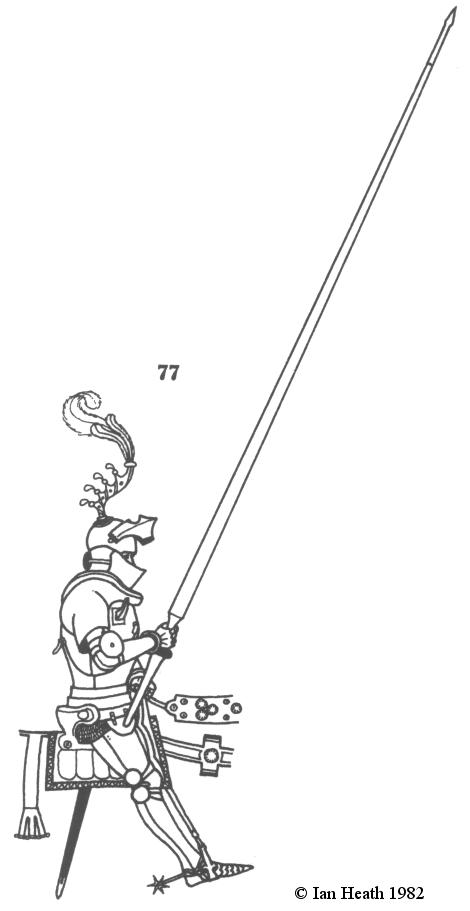
Try Amazon Audible Plus

ITALIAN MAN-AT-ARMS c.1455
An extract from Armies of the Middle Ages, volume 1by Ian Heath


77. ITALIAN MAN-AT-ARMS c.1455
This figure comes from Paolo Uccello's series of paintings of the Rout of San Romano (1432), variously dated by modern authorities but probably executed c. 1454-57. His armour is characteristically Italian in style and includes a lower-breastplate called a plackart, or sometimes a paunce. This appeared during the first decades of the 15th century and was widespread by the 1450s. It was attached by buckles and straps or sliding rivets to the breastplate itself, thus allowing more movement; a similar lower-backplate is also worn. The plackart and its backplate counterpart are often to be found in contemporary pictures being worn on their own or over a brigandine, particularly by foot-soldiers. A short mail corselet rather than a mail-reinforced arming doublet is worn under the plate body-armour. The insides of the thighs remain unarmoured, though the front plate on each leg has a hinged extension on the outsides which wraps round to cover the back of the thigh. This first appeared in the last quarter of the 14th century.
His helmet is of a type called an armet, from the Italian armetto or elmetto ('little helmet'). This evolved from the great bascinet and originated in Italy c. 1410, spreading from there via Germany and the Low Countries to England (where it was not as popular) and France. Its characteristic rounded shape can be seen here, fitting close to the head with the sides, which met at the front, hinged to open outwards. The visor here has 2 semi-circular portions cut away rather than the more conventional vision slit. A reinforcing bevor or wrapper appeared c. 1440 and is worn here, its strap being protected at the back of the neck by a rondel on a short stem. The ornate crest is typical of those to be seen in quite a lot of Italian sources of the second half of the 15th century, but in most cases they seem somewhat too fantastic to be taken seriously and may instead reflect contemporary artistic licence.